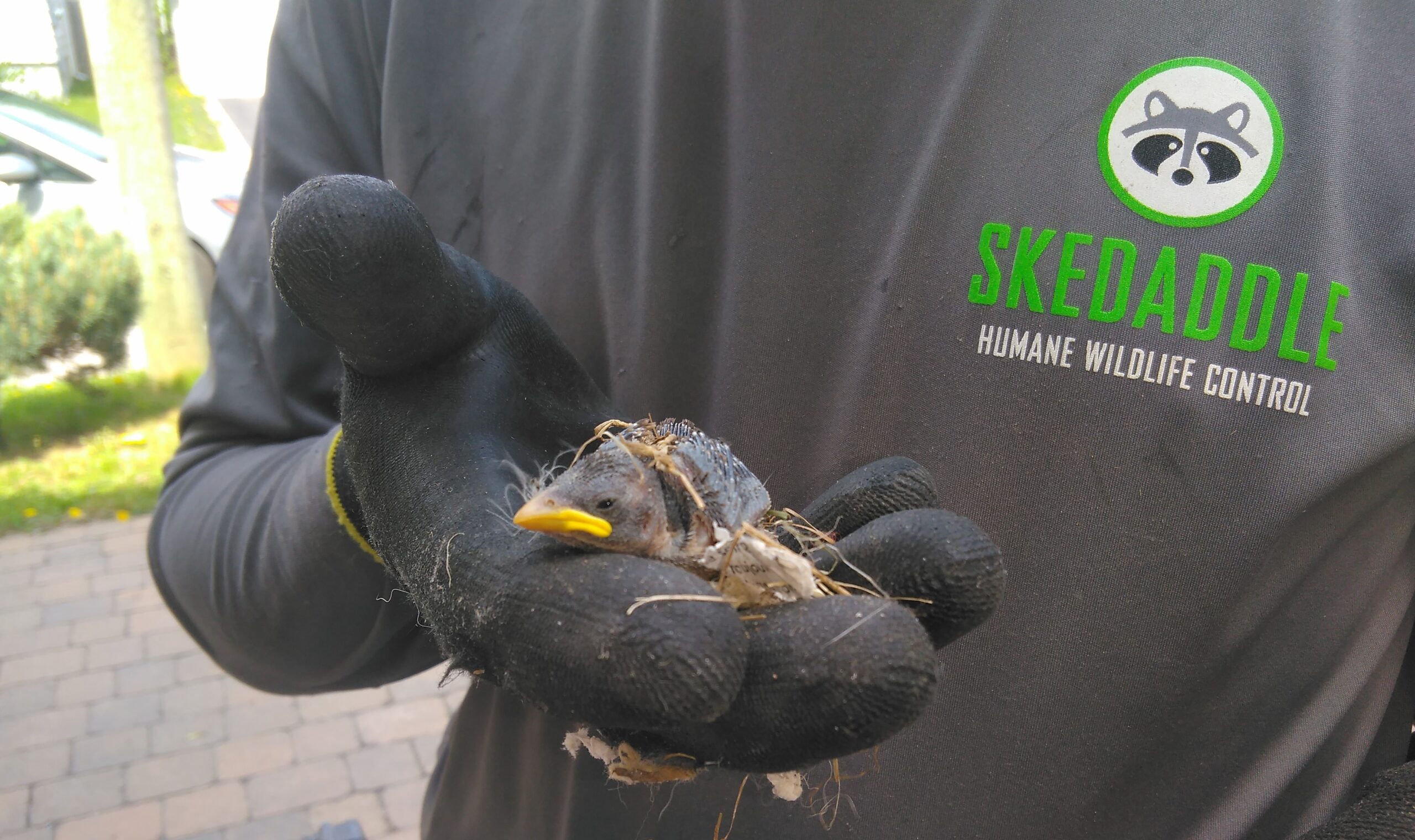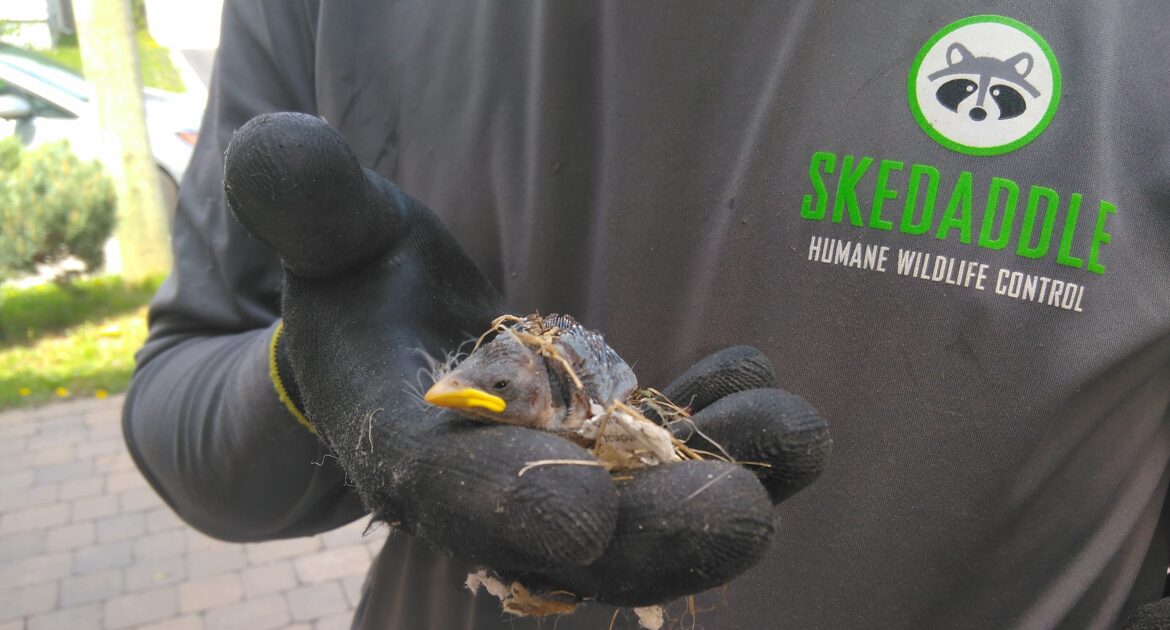One of the many topics experts in wildlife removal in Markham get asked about is whether it is okay to pick up and handle baby birds. While the short and definitive answer from the experts is no, it can be hard to look at such a helpless creature and not want to help.
Sometimes, baby birds get a little over-eager in their pursuit of flight and fall from their nest. People who come across these babies often want to pick them up and put them back in the tree, but is this okay?
The assumption is that if you touch a baby bird, the mother will smell you on it and abandon it. Is that true? Will a mother bird abandon its baby? While there are many questions about how and why you should or should not handle a baby bird, the honest answer is both complex and straightforward.
Will a Mother Bird Abandon Her Baby Because of a Human Scent?
Mother birds rarely abandon their babies. Additionally, birds are not known for having a keen sense of smell. Therefore, the idea that a bird will leave its young because it smells like a human is nonsense.
To abandon its baby, a mother bird would have to ignore its natural instincts, the innate drive to protect its offspring. Like most species, birds protect their young with a visceral sense of urgency and dedication. Sure, there are examples of some animals abandoning their young in the presence of predators, but this is rare. More often than not, a mother will protect her young, even at the expense of her own survival.
Therefore, do not worry that you will transfer your scent by handling the bird and ruin a happy bird family. However, while a mother might not abandon her young, that still doesn’t mean you should handle the baby.
Should You Ever Handle a Baby Bird?
When people spot a baby bird in the grass hopping around, they tend to think something is wrong. The desire to save the bird kicks in, but did the bird even need saving?
Baby birds will often wind up on the ground as they are learning to fly. The fact the bird is hopping is a good indicator that nothing is wrong. Additionally, if the baby has feathers, it is old enough to fly and is most likely on the ground trying to get the hang of it.
Rarely are baby birds not ready to fly and unable to fly found on the ground. If the bird has weird, tufty feathers or doesn’t seem able to move about easily or on its own, it is likely a nestling. In such rare instances, you can carefully pick it up and put it back in its nest.
However, do not handle the bird with your bare hands. You want to handle the bird with gloves to prevent the transference of any harmful germs or bacteria. You should always wear gloves because birds can transfer a disease called Psittacosis to humans. Using a clean pair of gloves protects the bird and you against harmful bacteria.
Should You Call Somebody?
Honestly, you are better off leaving the bird alone. If you are not practiced handling wildlife, you can potentially do more harm than good. Baby birds are incredibly fragile, and if handled too rough, can become injured. Despite good intentions, it is best to leave the bird alone. If you are concerned, you should contact a bird control specialist for help.
Have you seen a baby bird in the grass and are concerned for its safety? Contact Skedaddle Humane Wildlife Control and request a team for immediate assistance.




